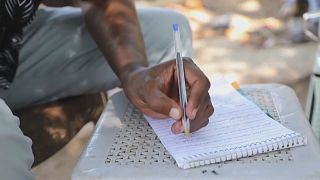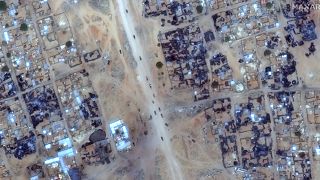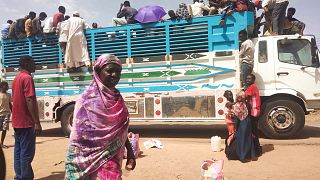Sudan
The bloody war between rival generals has put many Sudanese out of work. Without an income for months now, some have resorted to creative means to support themselves and their families.
Before April 15, when fighting broke out between the army and the paramilitary Rapid Support Forces (RSF), Ali Seif was teaching at Khartoum's Faculty of Environmental Engineering.
Today, this engineer and his family have taken refuge in Wad Madani, a town spared from the violence 200 km to the south, where most of the capital's nearly three million displaced persons are crammed.
Like many residents, his house was "stolen" by paramilitaries, and he told AFP that he had "not received a salary" since March, as banks in the fighting-ridden areas are nowhere to be found.
- No choice
So, to survive in his camp for displaced persons, he makes soap in the room he and his family have been given.
"Misfortune makes you creative: I noticed that there was no soap left in the markets, even though everyone needs it. So I decided to make soap bars", he says, proudly, amidst the plastic pots in which he mixes the soap paste before pouring it into small ice cube trays to form his soap bars.
Before the war, Michelle Elia Moussa worked as a primary school teacher. Now, this mother-of-one spends her days behind her small stall at al-Hasaheisa market, halfway between Khartoum and Wad Madani.
"I've given up hope and shelved my ambitions of being a brilliant teacher", she says, glasses on her nose and apron around her waist, as she watches over her bread.
"Without a job, I can't support myself," she tells AFP, in a country that was already one of the poorest in the world before the war, and where the spectres of famine, epidemics and widespread war crimes now loom large.
"It's the first time I've worked in a market, I'm not comfortable, I'm ashamed, but it's the war, I have no choice," she adds as she expertly spreads a light dough on cast-iron plates to make thin patties.
Eshraqa Moussa, for her part, has opened a small stall where she sells tea, a very popular drink in Sudan. Without it, she told AFP, she could "only provide one meal a day" for her children.
- Everything left behind
Draped in her long, multicolored veil, she still remembers the hasty departure from Khartoum, at the start of a war that has claimed nearly 4,000 lives --according to a very underestimated toll due to the chaos-- and forced more than four million people to flee their homes, i.e. nearly one inhabitant in ten.
"We left everything behind (...) So I came here and bought this little stall to sell tea," she explains.
She confesses she never imagined she'd be running this kind of business before the war, in a conservative society where tea sellers, though legion, are often stigmatized and harassed.
But with the war, all these taboos were shattered. Survival and survival took over. "We were forced to come up with ideas," says Mohammed Ali, wearing a white polo shirt.
This former civil servant in the capital says he "teamed up with some colleagues to open a small mobile food stall".
Made of white sheet metal and powered by a generator, it is "in the style of those you find in Khartoum, which don't exist in Wad Madani", he explains to AFP.
He sells mashed beans, falafel and other snacks popular with his compatriots.
Enough to feed his family.
Until the next tornado: all around him, the streets of Wad Madani are buzzing with a single rumor: war could soon be upon us.











01:06
Sudan: Thousands flee, more remain trapped in RSF attack on Darfur camp
01:13
Sudan: At least 89 killed in paramilitary attack
Go to video
Rapid Support Forces vows war with Sudanese army is not over
01:32
Sudanese celebrate Eid al-Fitr with hope amid ongoing conflict
Go to video
Sudan’s Sovereign Council declares Khartoum free after expelling RSF
01:11
Sudanese army recaptures Khartoum Airport and surrounds RSF stronghold